Strengthen your immunity with these 5 sleep tips and prevent your first cold of the season
Experts and immunologists share how to sleep your way through cold season
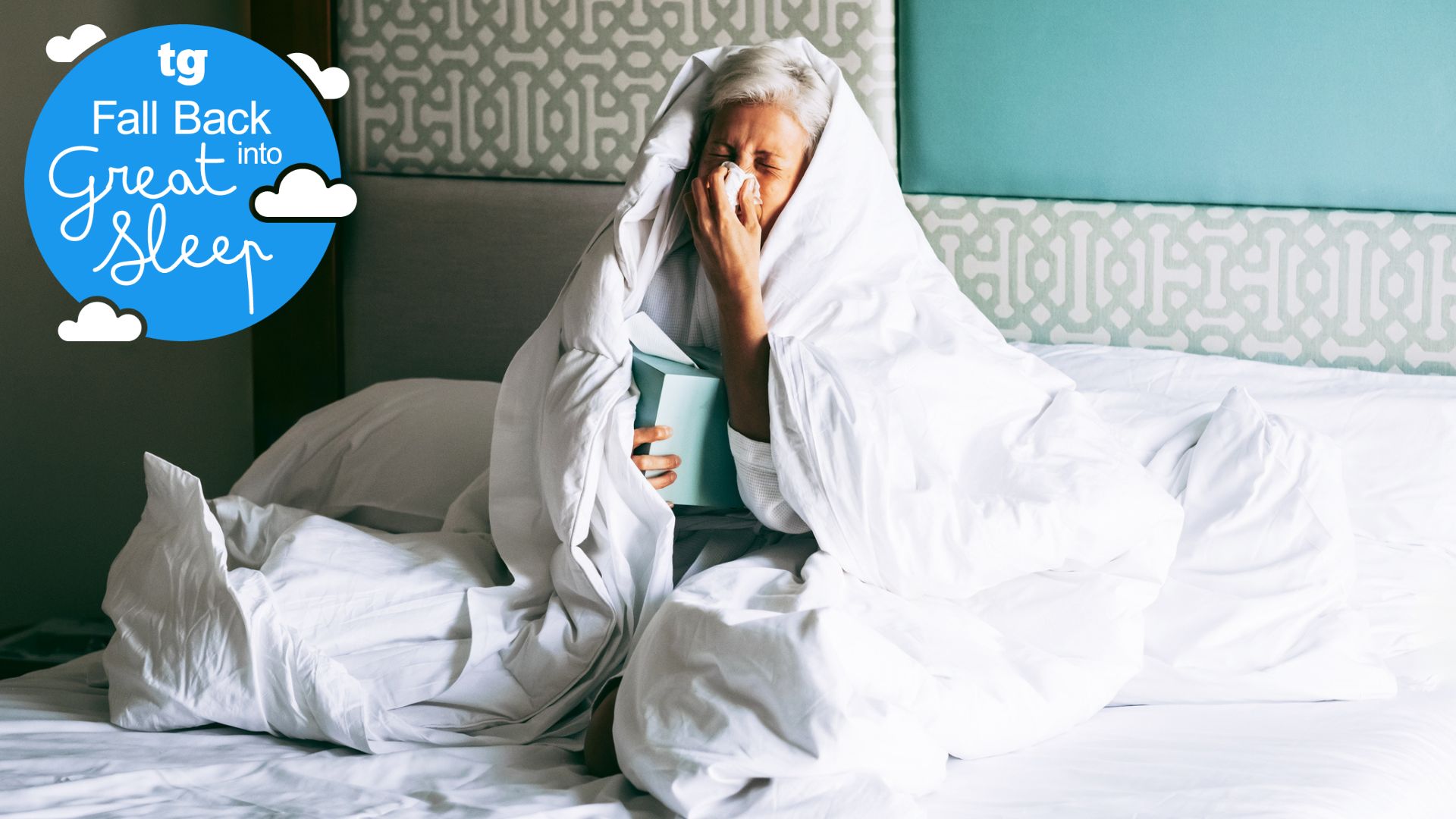
There's a reason it's called the 'common cold.' In the U.S., adults average two to three a year, and in the U.K the average is three to five. And though you can get a cold at any time of the year (hurrah!), fall and winter create conditions that mean you're more likely to pick up one of over 200 viruses that cause colds.
If this all sounds a little depressing, we have a glimmer of hope for you. You already have a tool in your arsenal to help keep your immune system strong against colds: sleep.
But how exactly does sleep benefit immunity and what can you do to supercharge your sleep quality and avoid getting your first cold of the season?
For our week-long Fall Back into Great Sleep campaign, we spoke to Dr. Zachary Rubin, Pediatric Allergist and Clinical Immunologist, and author of All About Allergies, and Dr. Jenna Macciochi, Senior Lecturer in Immunology at The University of Sussex and author of Immune to Age, to find out.

Zachary E. Rubin is a double board-certified pediatrician specializing in allergy treatment and immunology and has gained a huge following on social media thanks to his insightful videos on the immune system. He has also authored a book called All About Allergies.
5 sleep tips to prevent your first cold of the season
Even sleeping for the recommended 7-9 hours each night might lead to a compromised immune system if you're not getting fully restorative sleep.
Here, Dr. Rubin and Dr. Macciochi share their sleep tips to help you get the quality rest you need to prevent your first cold of the season.
1. Stick to a consistent sleep schedule
Just like our sleep-cycle is governed by our circadian rhythm (our internal 24 hour body clock), "our immune system follows a circadian rhythm, meaning its activity changes depending on the time of day," explains Dr. Rubin.
If you're familiar with Tom's Guide sleep coverage, you'll know we often encourage going to bed and waking up at the same time each day in order to regulate your circadian rhythm, and Dr. Rubin recommends this too in order to support your immune system.
"When you keep a regular schedule, your internal clock stays aligned with that rhythm. Improving both sleep quality and immune coordination. Try to stick within an hour of your usual bedtime, even on weekends," he explains.
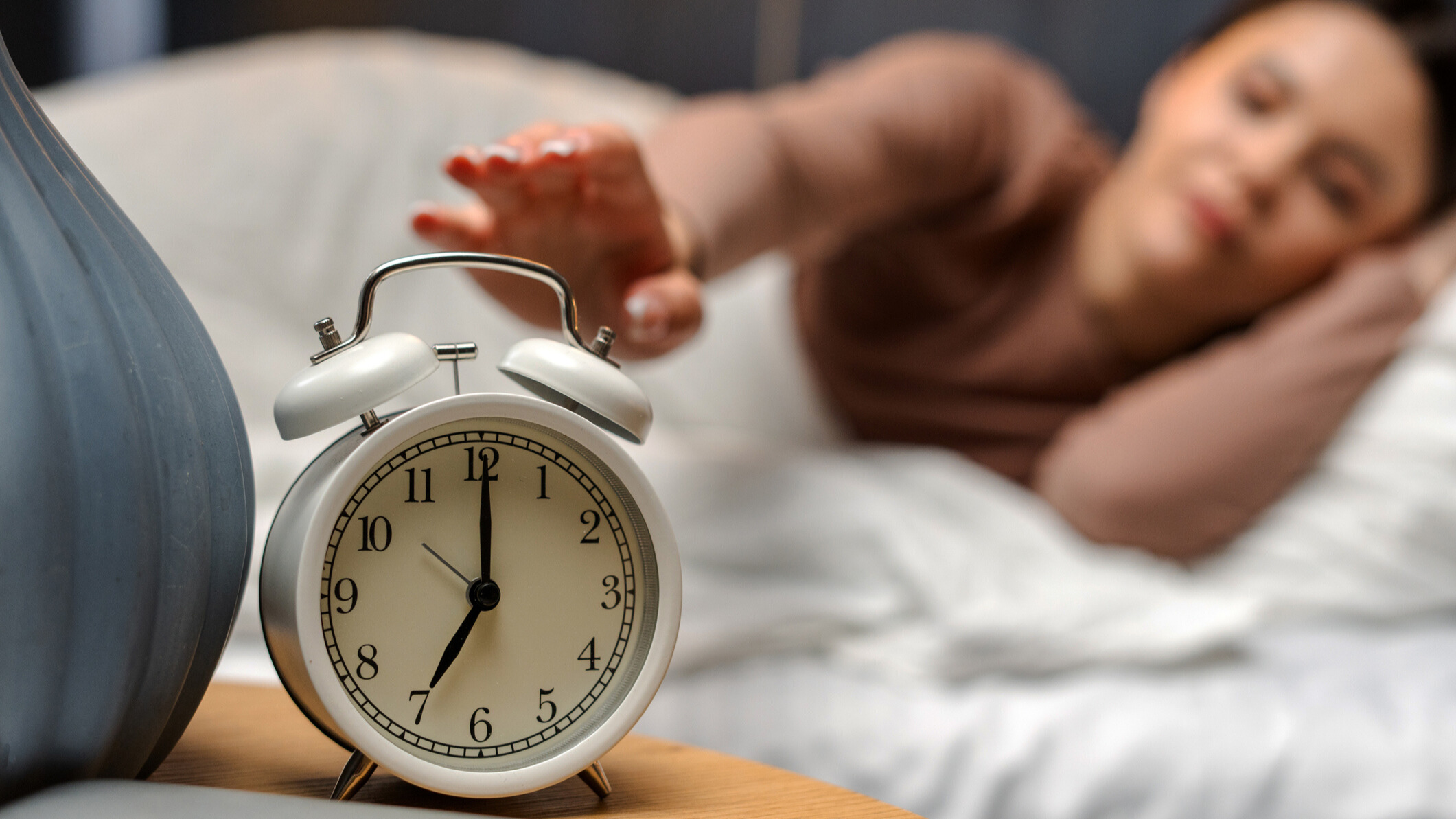
2. Limit screens an hour before bed
A study published earlier this year found that "a one hour increase in screen time after going to bed was associated with 59% higher odds of having symptoms of insomnia" as well as 24 minutes less sleep.
But sleep and our immune systems are interconnected, so negatively affecting your rest when you scroll in bed can also impact immunity.
"Blue light suppresses melatonin, the hormone that signals it’s time to sleep. Turning off screens early allows your body to transition naturally into rest mode," Dr. Rubin explains.
"That deeper, earlier sleep window is when many immune processes are most active."
As such, he suggests avoiding screens altogether in the hour before you go to sleep if you want to improve your chances of avoiding a cold.
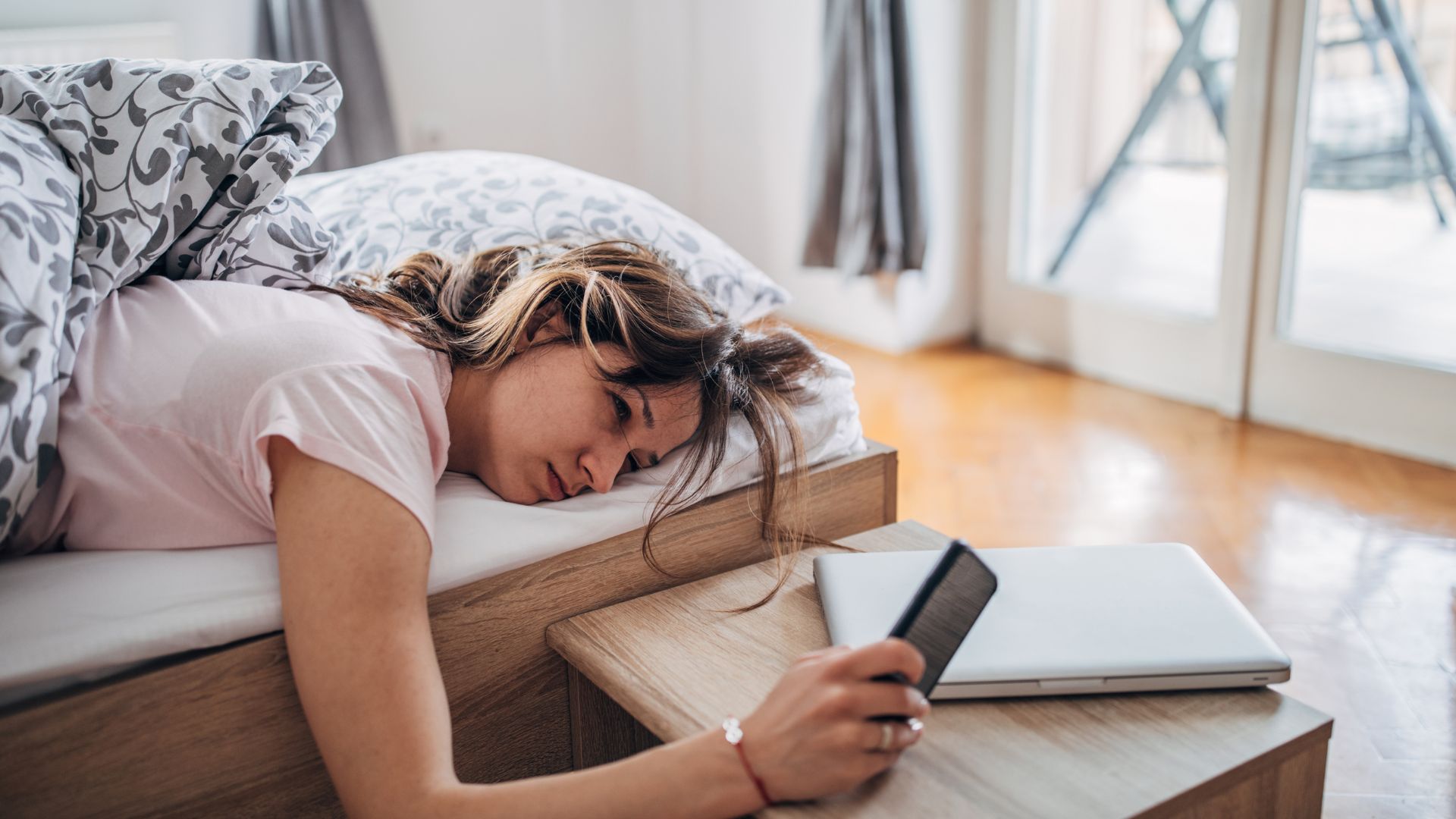
3. Keep your bedroom cool and dark
"Temperature and light are major sleep regulators," explains Dr. Macciochi.
Optimal sleep temperature for sleeping lies between 65 to 70 F (18 to 21 °C) for adults.
Research shows that an environment that is too hot or too cold can lead to a drop in REM and deep sleep, but maintaining a 'just right' bedroom climate can help you transition into the sleep stages (in particular slow wave sleep) that will help boost your immunity.
"A slightly cooler temperature (around 65°F/18C°) helps your core body temperature drop, which becomes a cue for your body to release melatonin and enter deep sleep more efficiently. Darkness reinforces that same signal," says Dr. Rubin.
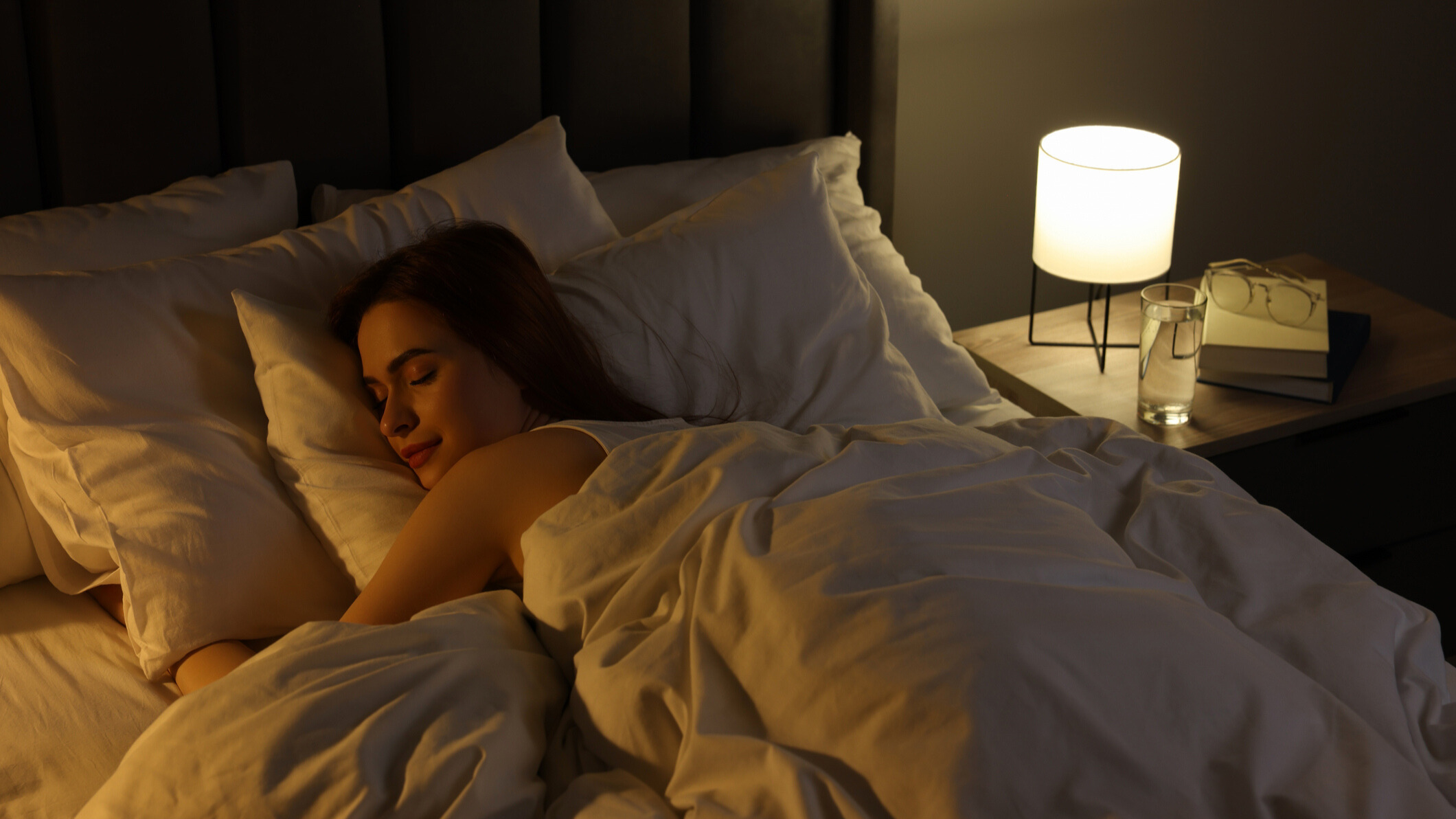
4. Support your body clock through nutrition
Certain foods, such as eggs, fruits, milk, spices such as turmeric and garlic, and leafy greens contain compounds that keep our immune system functioning healthily, according to a paper published in Food Science and Nutrition.
However, both of the experts we spoke to highlighted that the timing of when you eat, and avoiding certain foods and drinks later in the day is crucial to getting sleep that will benefit your immunity.
Try eating your main meal earlier in the evening and avoiding caffeine after midday
"Try eating your main meal earlier in the evening and avoiding caffeine after midday. Late-night eating and stimulants can delay sleep onset and disrupt metabolic and immune recovery processes that occur overnight," says Dr. Macciochi.
There are a number of surprising sources of caffeine that you may not have considered, including chocolate, matcha tea, green tea and pre-workout supplements.
Dr. Rubin also points to alcohol as a substance you should avoid too close to bedtime.
"Even small amounts of alcohol consumption can fragment sleep and reduce the proportion of restorative deep and REM sleep. That, in turn, dampens your body’s overnight immune recovery," he explains.
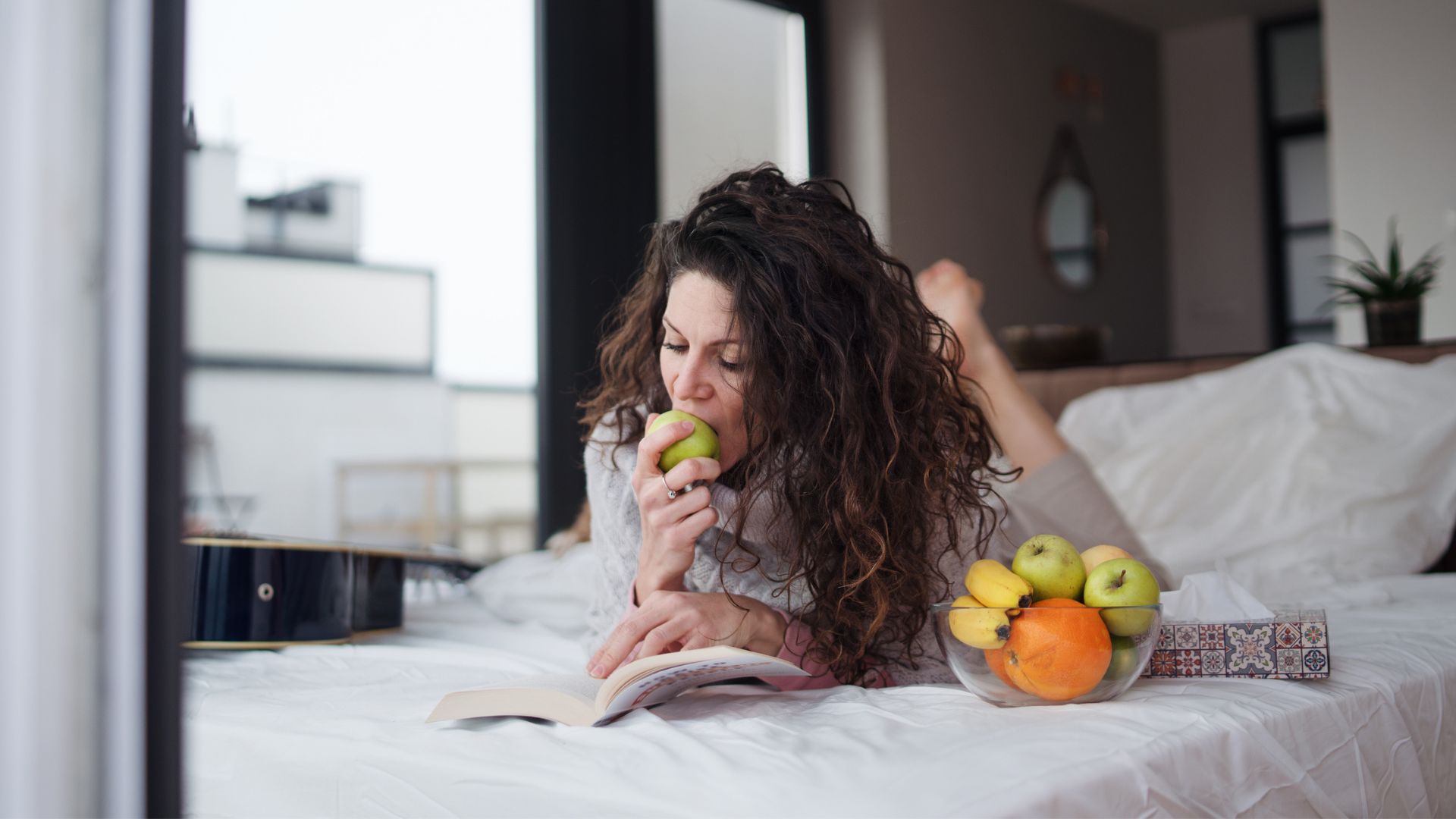
5. Listen to your body
The goal here is to help you get the best sleep possible to strengthen your immune system and, ideally, avoid falling foul of those pesky viruses. But if you do sense the tell-tale signs of cold; a blocked nose, sneezing, a sore throat, achiness or a cough, don't ignore it and try to power through.
Going to bed 30–60 minutes earlier for a few nights can make a real difference
"If you feel a cold coming on, it’s not a sign of weakness to rest, it’s a biological signal that your immune system needs energy," says Dr. Rubin.
His advice? "Going to bed 30–60 minutes earlier for a few nights can make a real difference."
On that note, a 2017 survey of 150 German physicians saw 93% agree that sleep helps their patients with colds and flu to recover faster, and 95% said a good night's sleep was important for those same unwell patients.
How does sleep strengthen immunity?
Feel like you catch a cold every time fall settles in? Dr. Macciochi explains why:
- We spend more time indoors with less ventilation.
- They survive longer in the dryer, less humid air.
- Shorter days and less sunlight can also lead to lower vitamin D levels
- Colder air even means nasal passages can get slightly cooler, which can reduce your upper airways' local immune defences.
Think of your immune system as a home; without maintenance it simply can't function as well. This is where sleep comes in.
"Sleep is when the immune system does much of its 'housekeeping,'" says Dr. Macciochi.
Specific sleep stages contribute to this in different ways. Research has shown deep sleep (or slow wave sleep) in particular plays a crucial role in strong immune system function.
"During deep non-REM sleep, the body releases cytokines — signalling proteins that coordinate immune defences, and supports the creation of immune memory, helping us recognise and respond more effectively to future infections," explains Dr. Macciochi.
"This stage of sleep also enhances the communication between immune cells and helps 'train' immune memory, meaning your body remembers how to fight off viruses it’s seen before or through vaccination," adds Dr. Rubin, who explains that REM sleep helps too.
"REM sleep, meanwhile, supports stress regulation, which indirectly protects immune function. In short: while you rest, your immune system is refining its playbook."
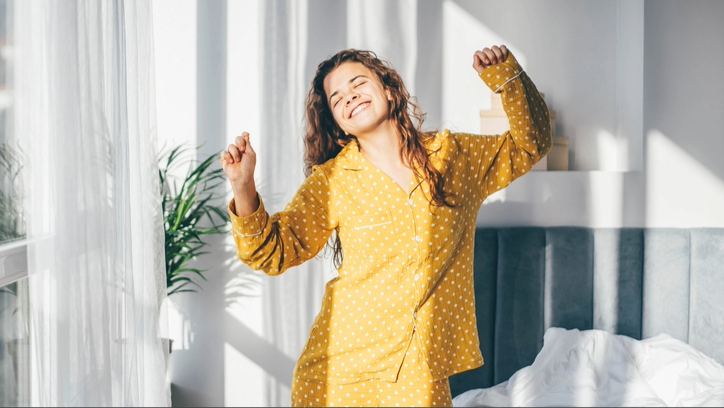
And while sleep is key to a well functioning immune system, poor sleep is proven to have the opposite effect.
New research published in the Journal of Immunology this year looking at the relationship between sleep deprivation and our immune system found that a 24 hour period of no sleep affected immune cell function and contributed to inflammation.
While another study found that sleeping for less than 6 hours increased the chances of getting a cold compared to people who slept for 7 hours or more.

Dr Jenna Macciochi, an immunologist specialising in the intersection of nutrition, movement, mind-body practices and lifestyle with the immune system in health and disease. She is the author of multiple books including Immunity: The Science of Staying Well and Your Blueprint for Strong Immunity.
Why quality sleep matters as much as quantity
The evidence points to making sure you get enough sleep if you want to protect your immune system and stave off a cold.
But Dr. Rubin and Dr. Macciochi both point out that the quality of your rest is just as important as simply being asleep for the 'correct' number of hours.
Most adults need around seven to nine hours of sleep. Any less and you may start to feel the effects of sleep deprivation, and more and you can compromise your health.
"You can’t just clock eight hours if those hours are fragmented or low quality," explains Dr. Rubin.
"Interrupted sleep disrupts hormonal cycles (like cortisol and melatonin) that keep immune activity in balance. People who sleep poorly are more likely to have higher baseline inflammation and weaker responses to vaccines and viruses,"
Instead, we should aim to achieve "consolidated, restorative sleep," Dr. Macciochi advises. "It’s not just about the duration, but the continuity and depth of those cycles," Dr. Rubin adds.
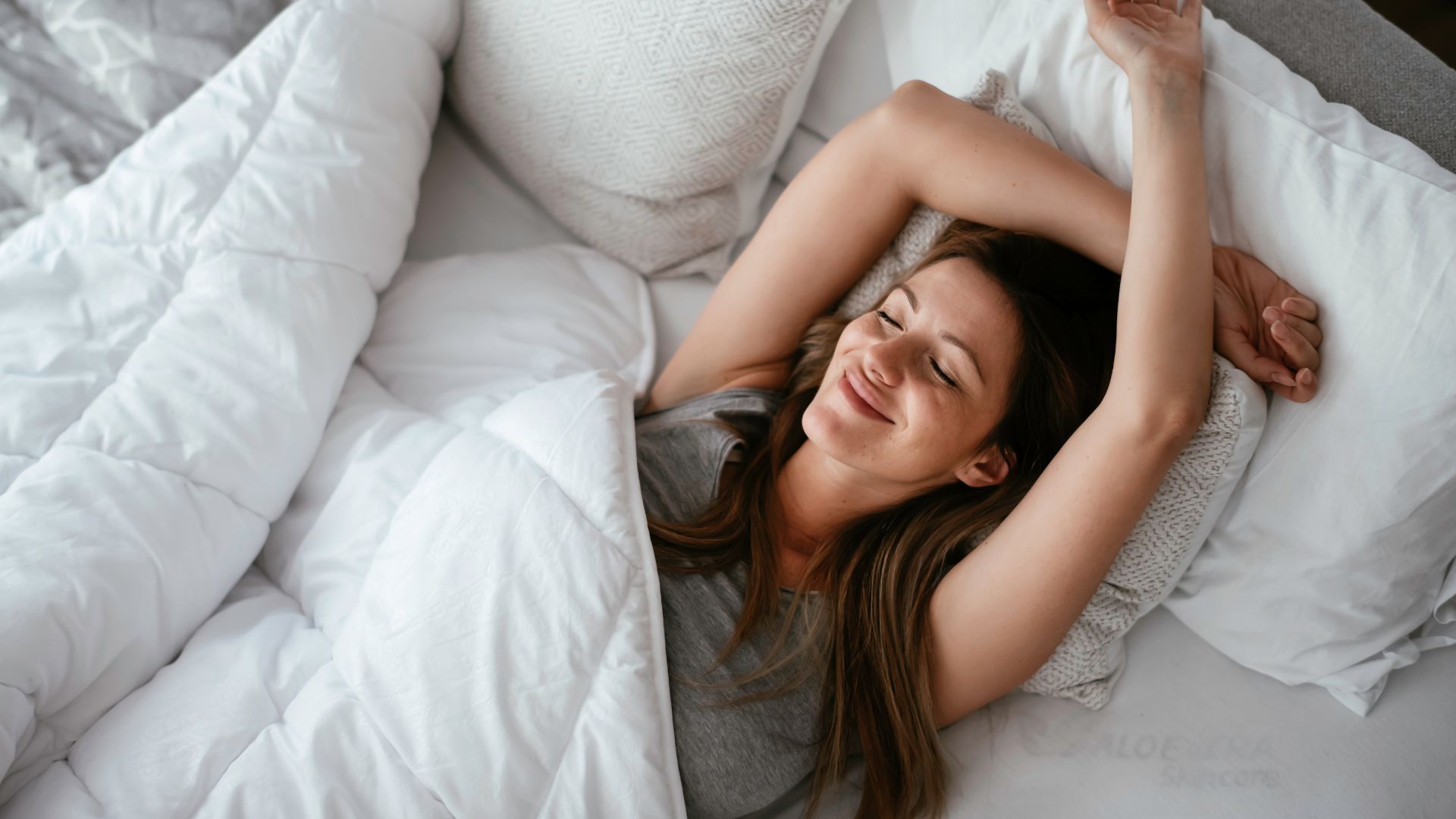
How to get the best sleep over winter
Get outside
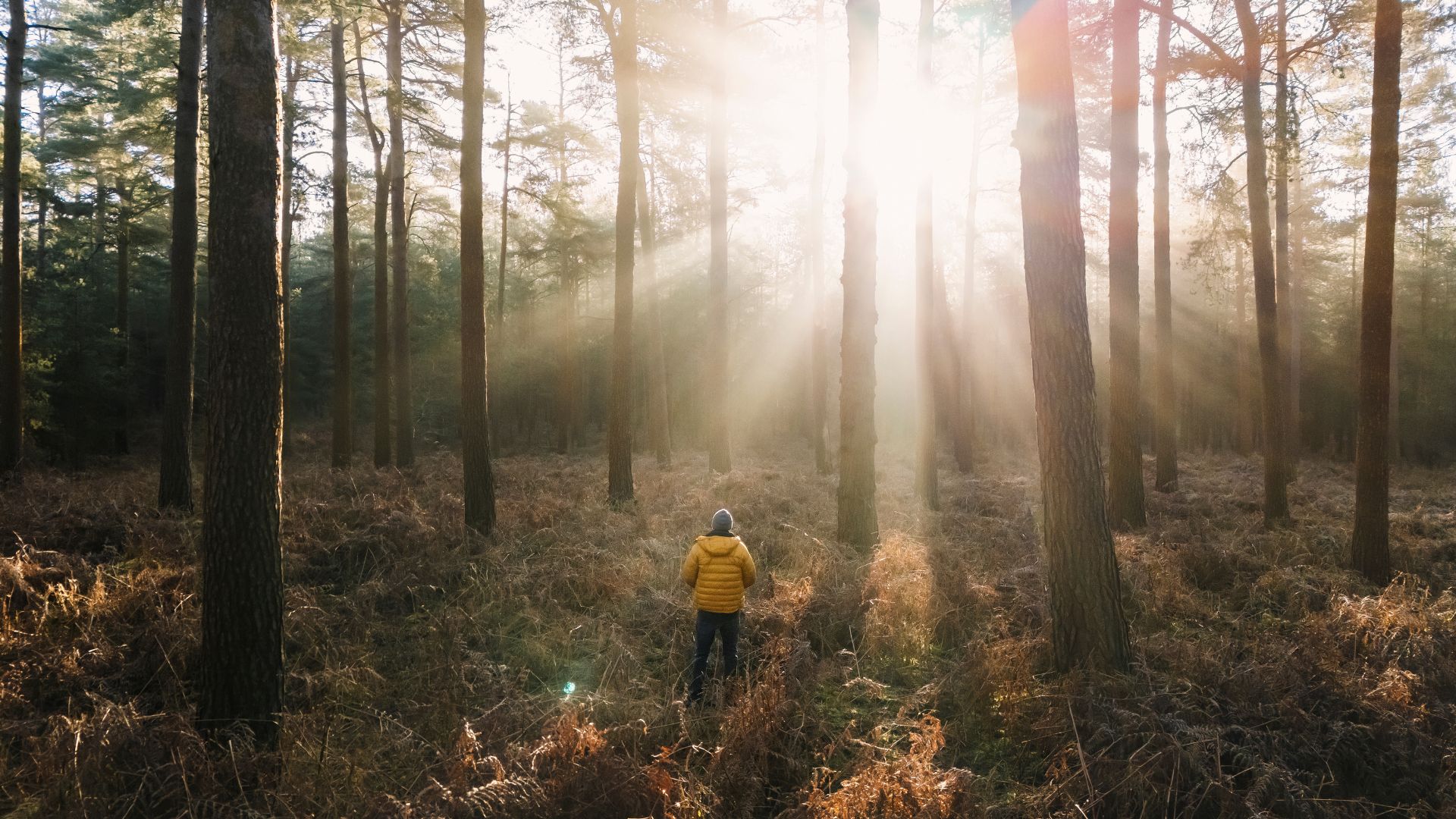
Before you grumble that going outside when it's cold isn't likely to help you drift off later on, let us introduce your new best friend for winter sleep: sunlight.
Firstly, light stimulates the production of cortisol — a hormone that contributes to you feeling alert during the day — and serotonin. Soaking it in earlier in the day helps regulate your circadian rhythm.
Let us introduce your new best friend for winter sleep: sunlight
"Natural light, even on overcast days, helps regulate circadian rhythms and boost serotonin, which later converts to melatonin for better nighttime sleep," says Dr. Rubin.
A scientific research paper on the benefits of sunlight explains that people who get morning exposure to sunlight see an impact on their melatonin production at night; it's released earlier and helps them fall asleep more easily.
And a recent study even found that getting a dose of light in the morning in particular improved sleep efficiency (which is the ratio of how long you're asleep of the total time you spend in bed), sleep latency (how long it takes you to drop off) and total time spent asleep.
Create the perfect sleep environment
You're not going to get a good rest at any time of year without a sleep set-up that's engineered to suit your specific needs.
The place to start is with the best mattress for you; one with pressure relief and support to ease pressure points and keep your spine aligned. Fortunately our guide for how to choose a mattress for your sleep position has everything you need to know.
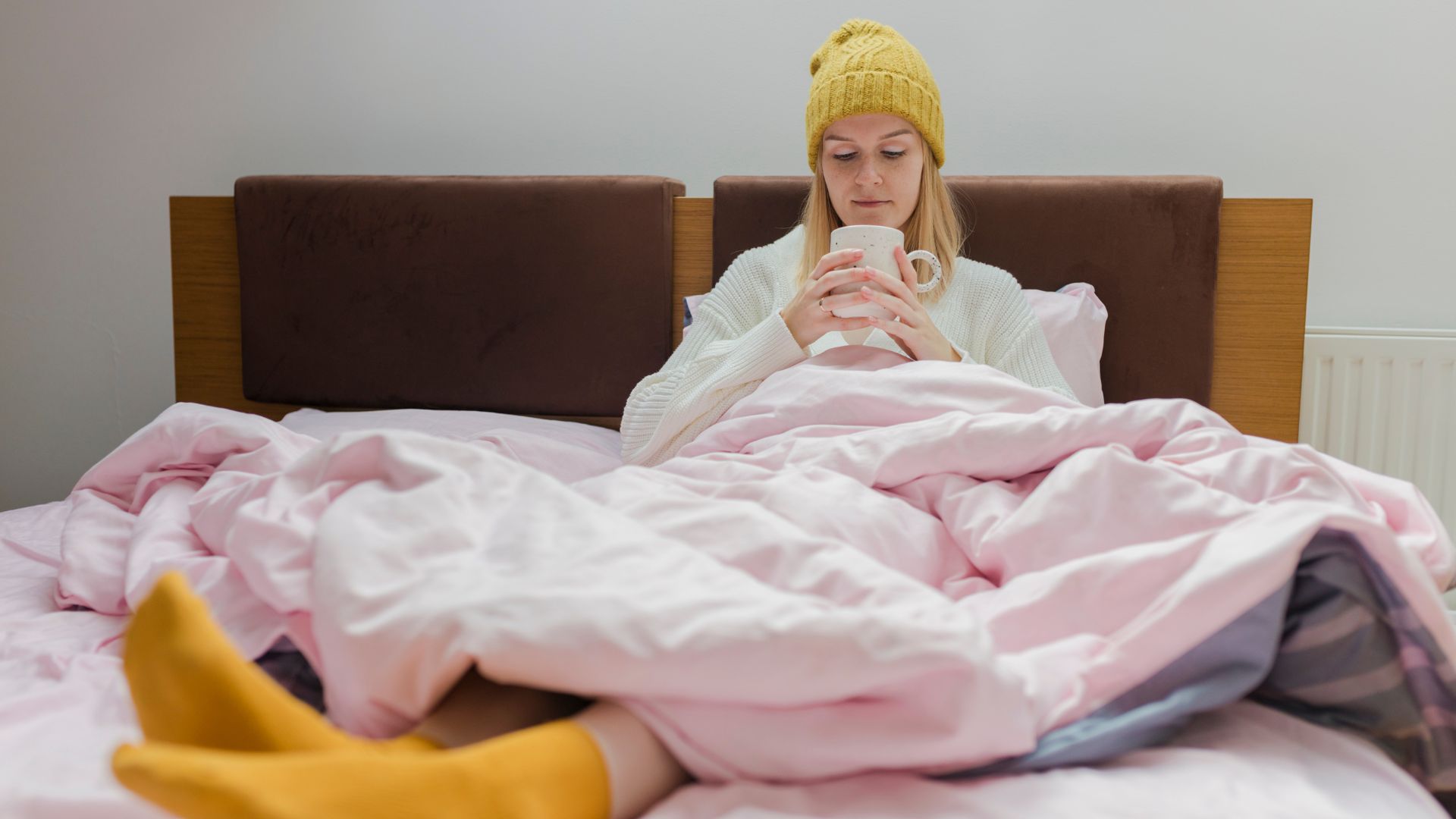
Likewise, your head and neck deserve (and need!) to be cushioned and supported, but it's not a case of one size (pillow) fits all: the best pillows of 2025 includes headrests to suit all sleeping positions and budgets.
Clearly these two elements are going to be a consistent presence as the seasons change, but unless you opt for a smart bed or mattress that has heating capabilities, your bedding for winter might require some adjustments.
Our top all-season duvet may be sufficient, but if you want to invest in a winter duvet, it should be 11 tog or higher, and materials such as down and wool are ideal, since they're excellent natural insulators. Switching your sheets and pillowcases to ones made from brushed cotton, flannel or bamboo are also going to help make your bed cozy (but not sweaty).
Practise excellent sleep hygiene
A concept that is commonly mistaken to mean keeping your bed clean (still important!), sleep hygiene is actually more about taking a holistic approach to your sleep health.
As well as finessing your bed so it's well-suited to your sleep needs, avoiding caffeine and stimulants in the lead up to bedtime, Dr. Rubin has a few other suggestions.
Reserve your bed for sleep, not scrolling or work
"Keep your bedroom dark, cool, and quiet. Consider blackout curtains or a white noise machine if needed," he advises.
He also recommends build a relaxing pre-bed routine, which could include activities like reading, stretching, or light meditation. A nighttime routine full of calming activities is a key element of sleep hygiene.
Not only are you directly preparing yourself for sleep by relaxing, but over time, your body and mind come to recognize these cues as signs it's time to rest.
Finally, resist the urge to use your bed as a multi-purpose location: "Reserve your bed for sleep, not scrolling or work," Dr. Rubin says.
Jenny Haward is a U.K. based freelance journalist and editor with more than 15 years of experience in digital and print media. Her work has appeared in PEOPLE, Newsweek, Huffpost, Stylist, ELLE, The Sydney Morning Herald and more. Jenny specializes in health, wellness and lifestyle, taking a particular interest in sleep.
You must confirm your public display name before commenting
Please logout and then login again, you will then be prompted to enter your display name.
 Club Benefits
Club Benefits





